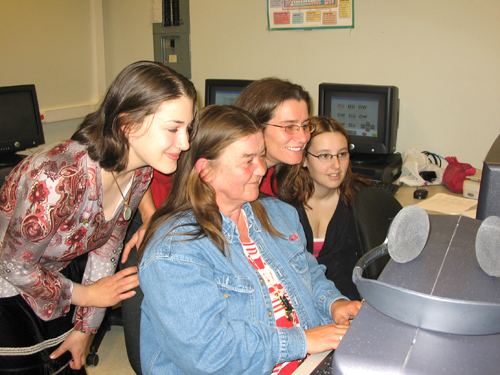This news release is more than 18 years old. Program information may no longer be accurate, and links may not work. For current program information, please refer to the program section.

Computer and classroom based reading interventions can result in significant improvements in the literacy levels of adults with low literacy skills, according to recent findings from the Adult and Community Education Institute of Holland College.
Reading Research III was funded through a Canadian Council on Learning grant and investigated the benefits of a classroom delivered reading program versus a computer delivered reading program to adult learners enrolled in the GED preparatory program. This is the first research project employing this type of comparison in Canada. The researchers noted that both programs resulted in significant improvement in reading; and also found an improvement in non-targeted areas such as math and science, possibly as a result of the participants' improved abilities to read and understand test questions. The reading, writing and social studies skills of students enrolled in the regular GED program also improved.
Reading Research III was the third in a series of studies started at the college four years ago. Two previous studies measured the impact of a phonetically based reading intervention on the employability of participants and the short and long-term impact of a phonetically based reading intervention on reading and self-esteem.
The authors of the study concluded that reading interventions were most likely to be beneficial to those with the lowest literacy levels such as in the elementary school range, that learners should be screened in order to identify the best candidates for enrollment in such interventions, and that both classroom based and computer based methods, were effective in remediating the participants' literacy deficits.
Dr. Audrey Penner, Director of Adult Education, Learner Supports and Applied Research at Holland College, says the study's results are invaluable in the delivery of effective reading programs.
"Adults with lower levels of education face a huge challenge in today's economy. It's important for them to be able to upgrade their skills quickly in order to meet the demands of an economy that expects workers to be highly skilled and technically oriented. The results will help us structure our programs to ensure that adult learners can prepare for the training they require."
The development of a best practice model for literacy interventions within GED program delivery is an immediate deliverable from this research project.
In this picture: (L-R) Reading Research participants Mallory Harrington, Kim Lawson, and Nicole Pitre gather around their classmate, Anne Marie Dowling, to discuss the computer based reading intervention program.
For more information about this release, please contact:
Michelle Gallant, Media and Communications Officer
Tel: 902-629-4270
Date: Friday, October 12, 2007